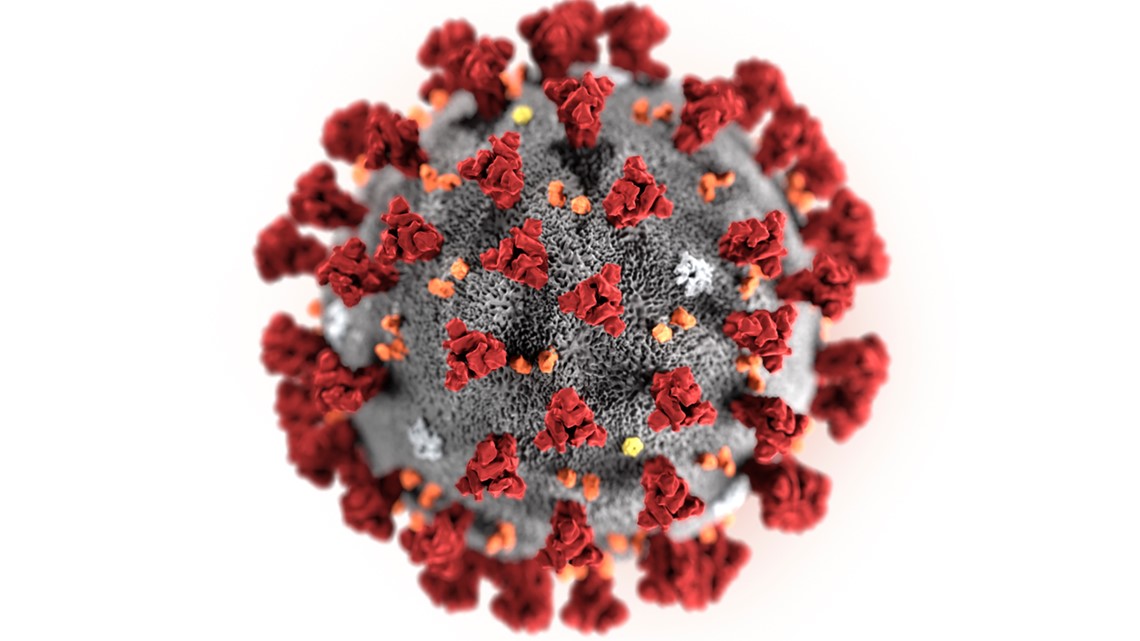While most Americans will not have contact with someone who recently visited Wuhan - or any other part of China - there’s still plenty of fear about becoming sick.
As stories of the new strain of coronavirus continue, many viewers have started reaching out to VERIFY about their travel concerns.
The cases in the U.S. are low, but some have been wondering whether cramped airplanes and crowded stations increase risks?
THE QUESTION
Can you catch the new strain of coronavirus from touching a surface a sick person touched? Can the virus survive long enough to make public places unsafe? What about mailed packages from regions with the virus?
THE ANSWER
According to the Centers for Disease Control and Prevention, it’s very unlikely that you could get the new coronavirus from a surface.
They explained that coronaviruses don’t survive long outside the body. While a person could carry the virus for a number of days or weeks - the virus can only survive on surfaces for a short period. The CDC estimates that the life span is “in the range of hours.”
That also means the chances are even lower for things like shipped packages. An imported good has likely been packaged and gone through a number of different environments before it winds up at your door.
The director of the CDC's Center for Immunization and Respiratory Diseases said Monday that “there’s likely a very, very, very low, if any risk of spread from products or packaging that is shipped” from China.
WHAT WE FOUND
There’s no evidence that anyone in the United States has picked up the coronavirus from any means beyond direct contact with bodily fluids. The CDC are particularly warning about “respiratory droplets.”
Respiratory droplets are essentially the result of coughing or sneezing. People expel those droplets containing the virus and others can be infected if it enters their body.
Therefore, a sick person touching something doesn’t necessarily mean they’ll get the virus on it. If they coughed or sneezed into their hand and then touched it, that would get the virus on the object. Similarly, if they coughed and sneezed around the object without touching it and the droplets got on the object, it would still get the virus.
The CDC doesn’t know exactly how long this coronavirus can survive in the environment. Past coronaviruses have survived in the environment in a range between a few hours to several days.


Even if you touch a surface with this virus still living on it, that doesn’t automatically make you sick. You have to touch your mouth, nose, or eyes before you wash your hands. If you touch a viral surface and then wash your hands immediately after without touching your face, it’s unlikely you’ll get the virus.
When VERIFY reached out to the CDC, they said they can’t fully evaluate the risks from products that are shipped from affected areas, however there’s no evidence that supports transmission of this coronavirus is associated with imported goods.
In a briefing with journalists on Monday, Dr. Nancy Messonnier, the director of CDC’s National Center for Immunization and Respiratory Disease, addressed the question of packages specifically. She said, “In general, because of the poor survivability of these coronaviruses on surfaces, that’s in the range of hours, there’s likely a very, very, very low if any risk of spread from products or packaging that is shipped over a period of days or weeks in ambient temperatures.”
The CDC said no cases in the United States are associated with imported goods. In fact, every case of the coronavirus in the United States before today was in a person who traveled through Wuhan. The only American patient who hasn’t visited Wuhan had regular close contact with a person who had been to Wuhan and whose infection was already confirmed.
They also say to wash your hands with soap and water regularly and avoid touching your eyes, nose and mouth with unwashed hands. While the likelihood of an average American getting the virus is already low, doing that will keep your odds of catching the virus even lower.
Something you’d like VERIFIED? Click here to submit your story

